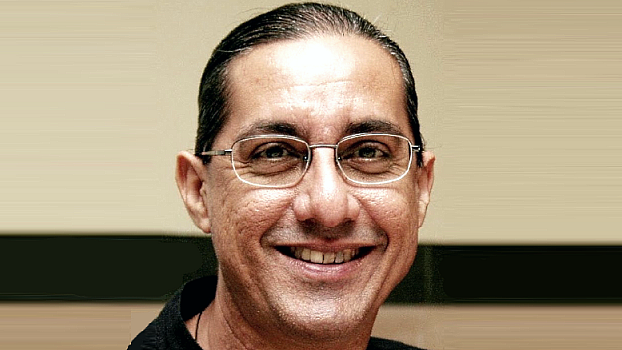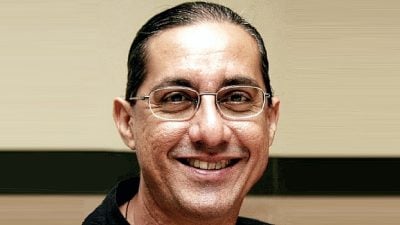
Yang Amat Berhormat Datuk Seri Anwar bin Ibrahim,
Perdana Menteri Malaysia
We are members of civil society who seek your consideration of the need to amend the process by which laws are written and revised in our country.
We are writing this in an open letter to encourage dialogue and more voices from the ground to be heard.
We believe this request is in the spirit of Malaysia Madani.
The current process by which laws are written and revised lack transparency, accountability and professionalism.
Many of us have been involved in the process of helping to draft inputs for Bills for new legislation or amendments to existing legislation.
However, the final outcome is often a “watered-down” version of original civil society aspirations, and is not aligned with the international conventions that our nation has ratified.
This letter is not about laws on national defence/security. Neither is it about international or domestic commerce and trade. This letter is about laws on social well-being that are of public interest, especially those related to children, persons with disabilities, and women.
They include, for example, the Child Act, Sexual Offences Against Children Act, Children’s Commission Bill, Persons with Disabilities Act, Anti-Sexual Harassment Act, Domestic Violence Act, Anti-Sexual Harassment Act, Senior Citizens Bill, and the proposed constitutional amendments on citizenship for children born overseas.
These laws are of vital importance to the well-being and rights of vulnerable groups in the community, and hence of keen public interest.
Please allow us to summarise what often happens in the process of writing and revising these laws:
1. To date, it is civil society that advocates for a new law or amendment of an existing one.
The advocacy may arise from pressing needs in society and available data.
The need could be because existing legislation is outdated and no longer adequately acknowledges and/or addresses emerging issues and changes in society.
The advocacy process could be long drawn and take anything between 5-15 years.
2. Once a cabinet decision has been made to introduce new legislation or revise an existing one, some attempt is made to engage stakeholders.
There may be workshops or town hall sessions to hear opinions, and at times online links to digital/written feedback.
Often, genuine, adequate and widespread consultation is limited despite the availability of relevant civil society organisations (CSOs), advocates, and lawyers who have worked on the issue and especially persons with lived experience.
Many CSOs and interested parties are not invited or made aware of these dialogue sessions, and hence their views are not sought and considered.
Most meetings are face-to-face with large numbers; this makes it very difficult for feedback and expensive for those who live some distance away to travel just to be able to offer a few words.
3. The relevant ministry or government agency then forms a working group/special project team to draft the legislation or amendments.
There are issues regarding the selection criteria for the inclusion of members of such working groups/special project teams: the credibility of the criteria per se and a lack of transparency of the selection process.
They are often “heavy” with civil servants from different ministries and very weak on persons with lived-experience and key advocates.
Only occasionally has the relevant ministry engaged key stakeholders and meaningfully involved them in the process. Such issues undermine public confidence.
4. During the process of drafting, and once a draft has been completed, there is no provision for enabling the wider community to review that draft and contribute comments to strengthen it.
Strangely, the practice in Malaysia is to place the entire process under the Official Secrets Act (OSA).
Accordingly, the members of the working groups/special project teams are made to sign an OSA undertaking.
This totally militates against the spirit of Malaysia Madani and is hard to understand for public interest legislation that relates to children, women and other vulnerable groups.
5. The legislation is then sent to the Attorney-General’s Chambers (AGC) for review.
Even if we have good draft legislation put together with the help of CSOs, at the AGC, the draft is heavily revised, at times without consideration of the background issues.
This process has yielded legislation that at times cannot be enforced, or is of limited scope and value.
6. Neither the working group/special project team that drafted the legislation nor the general public is allowed to view the final draft until it is tabled in Parliament.
This is why we often have an “outcry” from CSOs and other lawmakers at this stage.
The final product often bears little resemblance to what had originally been envisaged for addressing genuine needs.
Allow us also to offer some suggestions for improvement:
1. We need to speed up the process of identifying legislation for amendment and for putting in place new acts.
We could take a leaf from the process of Taiwan’s digital democracy which has broad citizen participation and is fast and fair.
The government there has an online platform where anyone can file a petition.
Petitions that gather at least 5,000 signatures are attended to by dialogue with relevant ministries to explore ways to incorporate it into policy-making.
India also practises digital democracy in enabling online submission of comments to draft legislation, for example, in the case of its Rights of Persons with Disabilities Act, 2016 — the Bill was posted online and online comments were welcomed, in addition to many other means for seeking nationwide views at all levels, including at grass-root and village level.
2. The government needs to have an ongoing, transparent and comprehensive feedback mechanism – an all-of-society approach – to garner input for any proposed legislation or amendments to legislation.
This feedback process should not be limited to a few “bengkel” but offer numerous opportunities and avenues, including multiple online town halls to enable nationwide participation. Those in locations far away from any bengkel venue should be able to smoothly participate.
Proper attention needs to be given to the correct technical pre-meeting arrangements to ensure the sound quality for online participants.
The feedback mechanism may include, but not be limited to, the following: easy access for persons with diverse disabilities in languages and formats that diverse disability groups can access and understand; a “turun padang” approach for rural and marginalised communities; and online written submissions.
Feedback opportunities and timelines should be widely disseminated via social media.
3. It is critical that any working group/special project team established by the government to amend existing legislation or draft new legislation include a broad base of persons that include persons with lived experience, key advocates, including those with critical views, relevant CSOs, and the legal fraternity.
We need to fully embrace the principle of “Nothing about Us, without Us.”
The government should follow the United Nations standard of “Open Calls for Expressions of Interest” (EOIs) to CSOs, advocates and the general public to become members of any working groups or task forces to draft legislations or amendments.
4. During the entire process of drafting legislation, it should be made accessible online to the public.
We do well to learn from India on how it has benefited from open citizen engagement, with provision for feedback at every stage.
The government of India has a citizen-centric platform that empowers people to contribute towards good governance (MyGov: An Overview | MyGov.in). Almost all Indian government departments leverage the MyGov platform for citizen engagement activities, consultations for policy formulation and to disseminate information to citizens for various government schemes and programmes.
Such an approach enhances societal maturity, offers ownership and enables wide voter support of any legislation, policies and implementing rules and regulations that are adopted.
5. The AGC must not be the sole and final arbiter of any legislation drafted.
We recognise that the AGC plays an important role but it must also respect the work of those entrusted with drafting the legislation.
In addition, the AGC must recognise that we need to revise our laws to be in line with the aspirations of international conventions which Malaysia has ratified.
6. The final bill, when tabled in Parliament, should be made available to lawmakers (Members of Parliament) at least two weeks before it is discussed to enable time for them to digest the contents and have consultation with others.
Finally, we need to develop and implement a new approach to decision-making that places children’s needs, wishes and outcomes at its heart, and involve children and young people every step of the way, including in the legal reform process. The same applies to women and the disabled.
We appeal to you, as our Prime Minister, to actualise law reform in Malaysia.
As we aspire to create a society of respect and trust, it must start with the government and the civil service respecting and trusting the people.
We extend our prayers and blessings to you in view of the heavy responsibility that you shoulder on behalf of all of us.
ADVERTISEMENT
ADVERTISEMENT







































